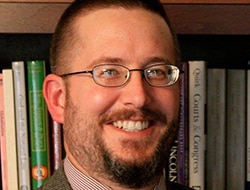
For the first time in over 25 years, I have been rereading Walker Percy’s “The Thanatos Syndrome.” On the short list of authors who have had an outsized influence on my own thought, this novelist and convert to Catholicism ranks quite high, and I have returned to every one of his novels many times.
Except, that is, for “The Thanatos Syndrome,” his last novel, published three years before his death in May 1990. I have, on occasion, pulled a line or two from it for articles, and along the way reread a scene or two, but my initial reaction — that it was the least interesting of his novels, and flawed in many (though minor) ways — discouraged me from rereading it from beginning to end.
The reaction has not changed much on a second full reading, even after a quarter of a century. But just as novels take on different meanings at different points in one’s life, they can also make one view current events in a rather different light.
Without giving too much of the plot away, “The Thanatos Syndrome” tells the story of Dr. Tom More (the hero of Percy’s earlier, and much better, novel “Love in the Ruins”) and his discovery of an unauthorized experiment to change human behavior through the addition of radioactive sodium to the water supply of a Louisiana parish. By any statistical measure, the experiment has to be judged a success: Crime, violence, suicides have all declined dramatically, as has recidivism among convicted criminals, while children have seen impressive increases in their educational attainment, and even adults have begun to exhibit the kind of mathematical skills and memory recall normally associated only with idiot savants.
Tom More, though, recognizes downsides that can’t be reduced to statistical measures, especially a loss of language skills and a diminished sense of self. Much of the action of the novel flows from the debate between More and those who are conducting the experiment, medical professionals who place the good of society as a whole ahead of the good of each person.
A Southerner who was keenly aware of the dynamics of race relations not only in the South but throughout the United States, Percy uses this debate in part to address the problem with external or structural solutions to racial tensions and everything that flows from them. As cities around the country have seen both peaceful and violent protests of the use of excessive force by a white police officer, Derek Chauvin, that resulted in the death of George Floyd, a black man, it’s hard not to read “The Thanatos Syndrome” through that lens.
We long for simple solutions to racial divisions. We call for justice and for the “end of divisions” as if these external actions are a form of radioactive sodium capable of rewriting human nature in a way that removes distrust and hostility. But complex problems require complex solutions — or, rather, changes in human behavior that can never be imposed from without but must always arise from within.
Justice is a start, but it’s only a start. Christianity doesn’t stop with justice but moves on to mercy and forgiveness. As Christians, it’s up to us to show the world that there is a different path, one not based on distrust and hostility, nor on mere justice, but on the charity that flows from the greatest of all unjust deaths, that of Christ on the cross.
Scott P. Richert is publisher for OSV.





